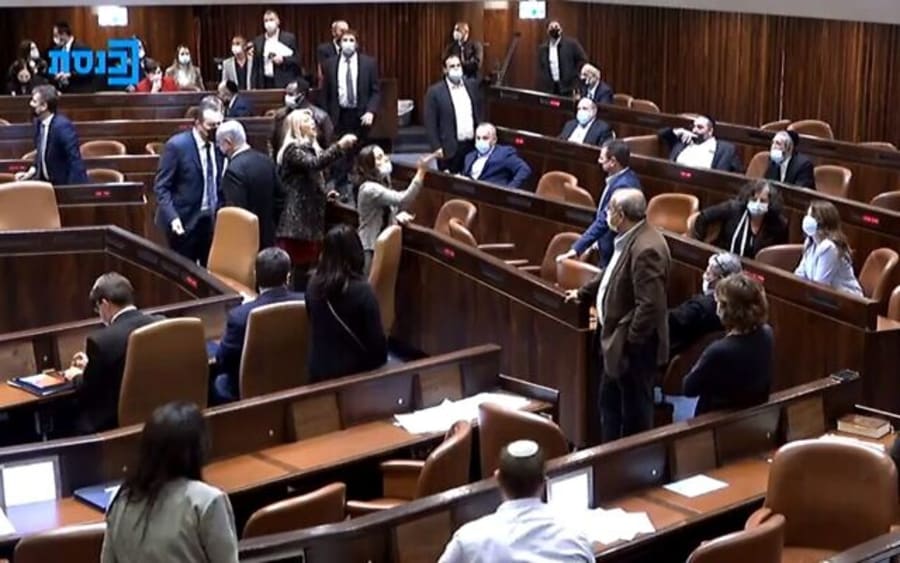The “unity” government has collapsed after barely seven months and Israel is going back to elections
It will be the 4th round election in 2 years and take place on March 23

Israel is heading towards its fourth election in less than two years after Knesset lawmakers voted 49 to 47 against delaying the deadline for passing a national budget for 2020.
The Knesset will automatically dissolve at midnight, unless there is a highly unlikely last-minute rapprochement between Prime Minister Benjamin Netanyahu and Defense Minister Benny Gantz.
The new election will most likely be held on March 23 next year. The outcome of the vote was a disappointment for both Netanyahu and Gantz who had both hoped to avert elections by extending the budget deadline another two weeks.
In another setback for Netanyahu and his Likud party, Likud Knesset Member Michal Shir announced that she is quitting the Knesset and joining the party of Netanyahu’s rival Gideon Sa’ar, the New Hope party. Shir, who has been critical of Netanyahu’s policies, said she was proud to vote in favor of ending the current Netanyahu-Gantz government, which she and many others have described as “dysfunctional.”
Another Likud member, Sharren Haskel, is also expected to join New Hope. These two follow Yifat Shasha-Biton-Biton who was first to leave Likud and join Sa'ar as the no. 2 on the ticket.
New elections are bad news for the former IDF chief and political rookie Benny Gantz, who soared in the polls prior to the last elections after vowing not to sit in a Netanyahu-led government.
After breaking his own election promise, however, and breaking up his own alliance with Yesh Atid, the party of his former political ally, Yair Lapid, Gantz’s Blue and White party has been steadily declining in the polls. At the last elections, which took place in March, Blue and White won 33 seats. According to fresh Channel 13 polls, Gantz’s party would drop to just five seats in the upcoming elections, the lowest number of any party expected to pass the electoral threshold. Gantz's brief political career could end in the next elections.
Netanyahu is also politically weakened, but far less so than Gantz. The Likud party is projected to drop to 28 seats compared to its current 36 seats.
From Netanyahu’s perspective, new elections are a mixed blessing. On the positive side, his political rivals in the political center-left bloc appear significantly weakened with Blue and White collapsing and other centrist parties failing to attract more voters, and the right-wing bloc is gaining strength in the polls. However, the bad news for Netanyahu is that several of his former allies have turned into potent rivals seeking to replace him.
Gideon Sa’ar’s New Hope party is projected to win at least 19 seats, transforming Sa’ar into the prime minister’s main political rival. While Sa’ar is politically right wing, he has vowed not to sit in a government with Netanyahu, a vow that is attracting voters from the entire political spectrum.
Naftali Bennett, who is heading the right wing Yamina party, is another former Netanyahu ally who has increasingly become critical of the prime minister and is no longer considered an automatic ally.
Avigdor Liberman who heads the secular right-wing Yisrael Beytenu party, is another former Netanyahu ally, who has vowed to replace the prime minister and indicated that he is willing to cooperate with centrist parties in order to achieve this goal.
It increasingly appears that Bibi's former allies turned rivals are best positioned to achieve the left's longtime goal of replacing the Netanyahu government.

The All Israel News Staff is a team of journalists in Israel.














